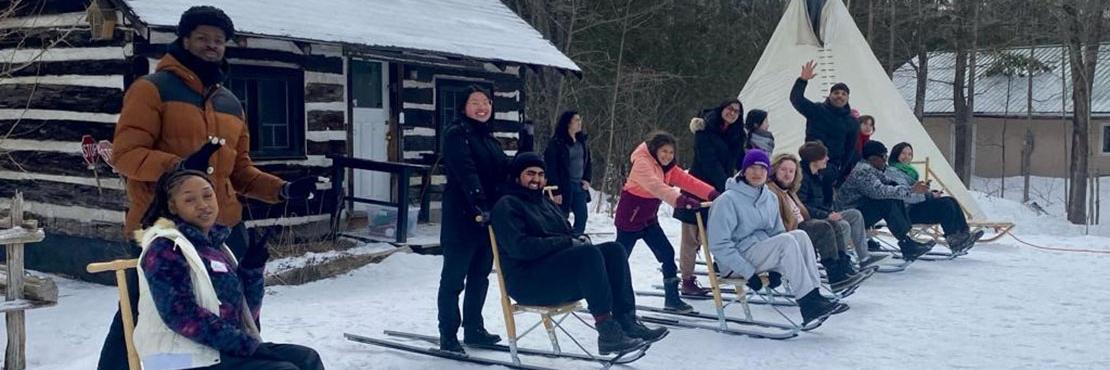What is Experiential Learning?
Challenge and experience followed by reflection, leading to learning and growth
The Department of Sociology at University of Toronto Scarborough presents unique experiential learning opportunities for its students. These exciting opportunities emphasize the Department of Sociology’s focus on land-based and Indigenous learning.
Experiential offerings at UTSC Sociology
SOCD02H3 - Global Field School: Indigenous Costa Rica: This intensive international field school course is an experiential and land-based learning trip to Indigenous territories in Costa Rica, in order to learn about settler colonialism, Indigenous communities, and UNDRIP (the United Nations Declaration on the Rights of Indigenous Peoples).
Students will learn with Indigenous Costa Rican university students and community partners in order to draw links between policy frameworks (UNDRIP), ideologies (colonialism) and the impacts on Indigenous communities (e.g. education, health, food security, language retention, land rights). The course involves 14-16 days of in-country travel.
The Indigenous Garden on the UTSC Campus Farm was initiated by Prof. Dani Kwan-Lafond in 2020, with community partner Isaac Crosby. Isaac is a knowledge keeper, gardener and Indigenous agriculture expert who is Black and Indigenous. He is the lead horticulturalist for the garden, managing the Three Sisters Garden and the medicine garden. The garden is open from early May to late October each year, and is part of the UTSC Campus Farm, under the Coordination of Béatrice Lego.
Events in the garden include visits to learn about Indigenous cultivation methods, Indigenous foods, food sovereignty – the right of communities to control how their food is produced, traded and consumed – or the social inequity of access to food. Hands-on activities include weeding, planting and watering, helping care for sema (traditional tobacco) and braiding sweetgrass.
Through paid research opportunities and course work (SOCD08 - Scarborough Place-Making: Indigenous Sovereignty and Settler Landholding), students in the Quieting and Reclamation research team track the legal, social and cultural practices that constitute the University of Toronto Scarborough into a place, from settler contact in the late 1700s to the present. The legal term “quieting” refers to the process by which settlers and the settler-colonial state continually work to quiet Aboriginal title and erase sovereign Indigenous presence on the land. Reclamation refers to the Indigenous assertion and enforcement of sovereignty over land and waters. The project combines digital tools, historical data, and guided walks on the campus to learn how quieting and reclamation operate. the settler-colonial state work to “quiet” Aboriginal title and erase sovereign Indigenous presence on the land.
Each year students in SOCB47 - Social Inequality travel to an outdoor education centre in Kawartha Lakes for a three day immersive land-based and experiential learning trip. Guided by co-teacher, elder and residential school survivor Peter Sackaney (Cree), students learn about the Truth and Reconciliation Commission of Canada, treaties, and the legacy of the residential schools system.
The Ma Moosh Ka Win Trail runs along Highland Creek. Professor Dani Kwan-Lafond worked with Indigenous students and community partners to design an interactive guided trail walk using a Digital Storymap. The guided walk helps teach about Indigenous relationships to the land. Activities at key points on the trail introduce the walker to Indigenous (primarily Anishinaabe) teachings about the natural world.
